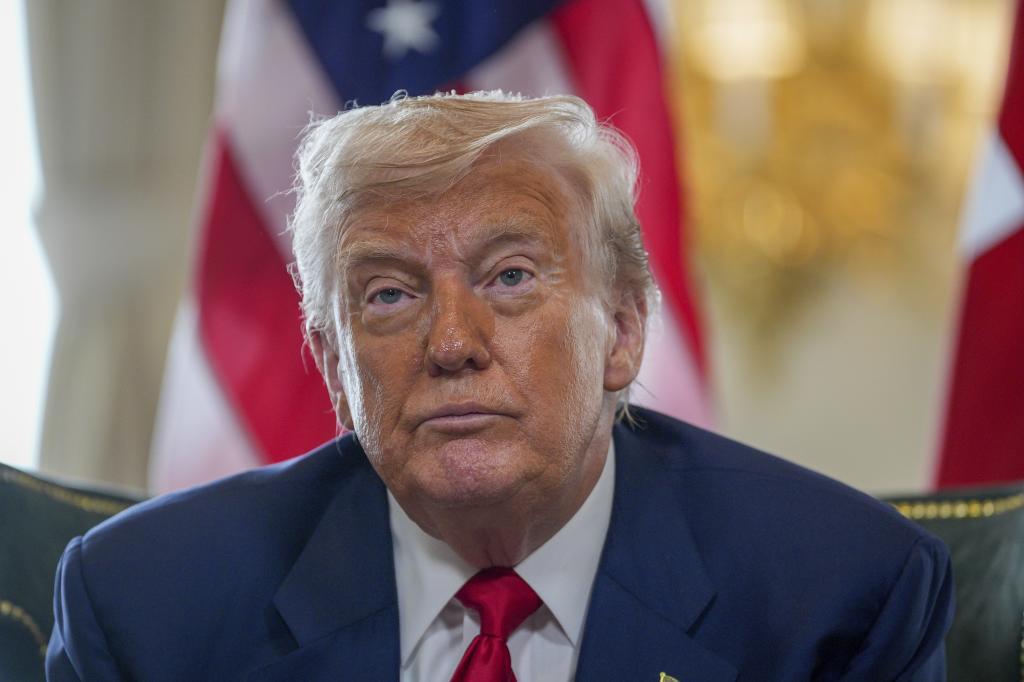The United States and Argentina revealed on Monday that they are developing a strategy to enable Argentine travelers to visit the U.S. without needing a visa.
It may take between two and three years before Argentine passport holders can travel without a visa, but the Trump administration’s decision to begin the process demonstrated backing for President Javier Milei, their most ardent supporter in South America and a favorite among conservatives globally.
The gesture occurred during Homeland Security Secretary Kristi Noem’s visit to Buenos Aires, where she held private meetings with Milei and his officials. Noem signed the intent statement together with Security Minister Patricia Bullrich in Milei’s office.
The U.S. Department of Homeland Security commended Milei for altering Argentina’s foreign policy to align with American interests.
“Under the leadership of President Javier Milei, Argentina is emerging as an even more robust ally to the United States — demonstrating a heightened dedication to border security for both countries,” the statement attributed to Noem said.
This initial step in Argentina’s path to joining the Visa Waiver Program, it stated, “demonstrates our robust collaboration with Argentina and our shared commitment to encourage legal travel while preventing risks.”
The department mentioned Argentina as the country with the lowest visa overstay rate in the U.S. among Latin American nations.
Eliminating strict U.S. visa rules—especially during a period when U.S. President Donald Trump is imposing stricter policies on foreign individuals—would provide a symbolic win for Milei, an individual who identifies as an “anarcho-capitalist” and gained influence as a far-right outsider who emulated Trump’s anti-woke messaging and effective use of social media.
When he was the first world leader to visit Trump following the U.S. election, Milei acted like an enthusiastic student at Mar-a-Lago.
At the Conservative Political Action Committee conference in Washington last February, he presented billionaire Elon Musk with a chainsaw symbolizing the reduction of red tape to back his DOGE initiative aimed at cutting down government inefficiency.
While not participating in the far-right, pro-Trump speaking events, Milei is dedicated to stabilizing South America’s second-largest economy following years of instability under left-wing populist leadership. By implementing strict budget reductions and widespread job cuts, Milei has managed to reduce Argentina’s high double-digit inflation.
The final time Argentines were not required to have a visa to visit the United States was during the 1990s, under another pro-free-market leader, the late former President Carlos Menem.
Menem’s neoliberal policies and the fixed exchange rate of the peso to the U.S. dollar led to the decline of Argentina’s industrial sector, increasing poverty in a nation that was once among the richest in the world a hundred years ago.
Amid the crisis, the U.S. reinstated visa restrictions in 2002 as young Argentines attempting to escape hardship gathered at European embassies and started to migrate to the U.S. illegally.
The Argentine leadership referred to Monday’s initial agreement as “a clear indication of the strong relationship” between Milei and Trump.
“This mutual connection extends beyond the commercial or economic area, forming a strategic and broad-based relationship rooted in a common vision,” the presidency added.
Noem, who was raised on a farm in rural South Dakota, later on Monday rode through a military base on horseback and savored asado — Argentina’s beloved meat-focused barbecue and national favorite.
She is the third member of Trump’s Cabinet to have met Milei in Buenos Aires this year, following U.S. Treasury Secretary Scott Bessent and U.S. Health Secretary Robert F. Kennedy Jr.
More than 40 primarily European and affluent Asian nations are part of an elite group that permits their citizens to visit the U.S. without a visa for a period of three months. Nevertheless, border officials have the authority to deny entry to any individual.
Approximately 20 million visitors participate in the program annually. At present, Chile is the sole Latin American nation included in the initiative.
International travel to the U.S. dropped during the initial phase of Trump’s return to the White House, with travelers, particularly from Latin America, worried about getting caught in the administration’s strict border enforcement. Some individuals cancelled their trips as a form of protest against his foreign policy and anti-immigrant statements.
However, these figures started to recover in April, with over 3 million international visitors — an 8% increase compared to the previous year — from nations outside of Mexico and Canada, as reported by the International Trade Administration, a division of the U.S. Department of Commerce.
Besides tightening control at the southern border, Trump has introduced further challenges for students, visitors, and others wishing to enter the United States.
His recently passed “big, large” bill on domestic issues proposes the implementation of a new “visa integrity fee” amounting to $250, which will be added to the visa’s regular cost.
Officials in the travel sector have voiced worries that the fee might deter visitors who provide over $2 trillion each year and support 9 million jobs within the U.S. economy, as reported by the International Trade Administration.
Approximately one-fourth of all travelers to the United States originate from Latin America and the Caribbean, according to the agency.
Flights coming from Argentina have risen by 25% this year — a greater growth rate than from any other nation.
Don’t overlook all our updates atwww.mundoamerica.com.



